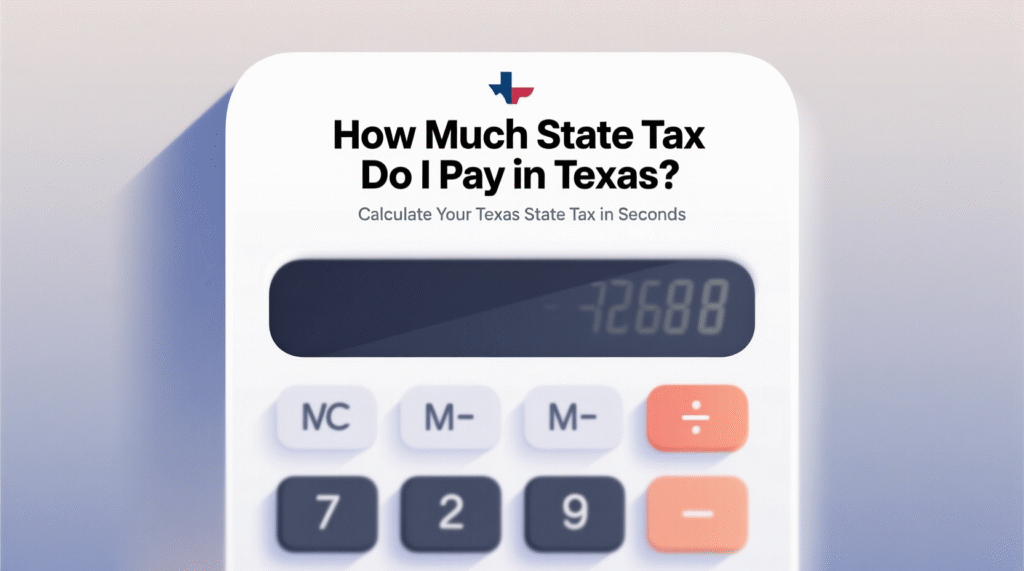
Texas does not collect a state income tax. That means your paycheck only has federal income tax withheld—no state tax is taken out. But Texans still pay other types of taxes: sales tax, property tax, and, in some cases, franchise tax for businesses.
Does Texas Have a State Income Tax?
No. Texas is one of nine states without a personal income tax. For residents, this means:
- Wages, salaries, and retirement income are not taxed at the state level.
- Only federal income tax applies.
This is often why Texas is considered a “tax-friendly” state for workers and retirees.
What Taxes Do Texans Actually Pay?
Even without state income tax, Texas funds public services through other taxes. Here’s the breakdown:
Sales Tax
- State rate: 6.25%
- Local rate: up to 2% (set by cities and counties)
- Maximum combined rate: 8.25%
👉 Example: If you buy a $100 item in Houston, you’ll likely pay $8.25 in sales tax.
Certain items like groceries and prescription medicine are exempt, while others (like prepared food or clothing) are taxable.
Property Tax
Property tax in Texas is set at the county and local level. There’s no state property tax.
- Average rate: about 1.5% of a home’s value
- Example: On a $300,000 home, the annual property tax bill is roughly $4,500.
Rates vary: some counties are higher, some lower. For many Texans, this is the largest tax expense.
Franchise Tax (For Businesses)
Texas doesn’t have a corporate income tax, but it does levy a franchise tax on businesses:
- Retail/wholesale: 0.375%
- Other businesses: 0.75%
- Exemption: Small businesses with less than ~$2.5 million in revenue usually don’t pay.
Other Taxes
- Gas tax: built into the price at the pump.
- Hotel occupancy tax: 6% state rate + local add-ons.
- Tobacco & alcohol taxes: applied at purchase.
- Sales tax holidays: for back-to-school shopping and disaster supplies, offering temporary exemptions.
How Does Texas Compare to Other States?
- Income tax: $0 (savings compared to states like California or New York).
- Property tax: Higher than average.
- Sales tax: Among the highest combined rates in the U.S.
So while Texans don’t lose a chunk of their paycheck to state income tax, they pay more at the register and in property taxes.
Common Questions About Texas Taxes
Do retirees pay state tax on pensions or Social Security in Texas?
No. Retirement income is not taxed by the state.
What’s the highest sales tax I’ll pay in Texas?
Up to 8.25%, depending on your city or county.
Are there property tax breaks for seniors or veterans?
Yes. Texas offers homestead exemptions and reductions for seniors, veterans, and disabled residents.
When are the tax-free weekends in Texas?
Usually in August for school supplies, and during certain periods for energy-efficient appliances and emergency prep.
Does Texas have lower overall taxes than other states?
It depends. Texans save on income tax but often pay more in property and sales taxes.
Robert is the creator of StateTaxesEstimator.com, a trusted resource dedicated to helping users accurately estimate their state taxes. With a strong focus on clarity and precision, Robert combines expert knowledge with practical tools to simplify complex tax calculations. His mission is to empower individuals and businesses to make informed financial decisions with confidence and ease.
